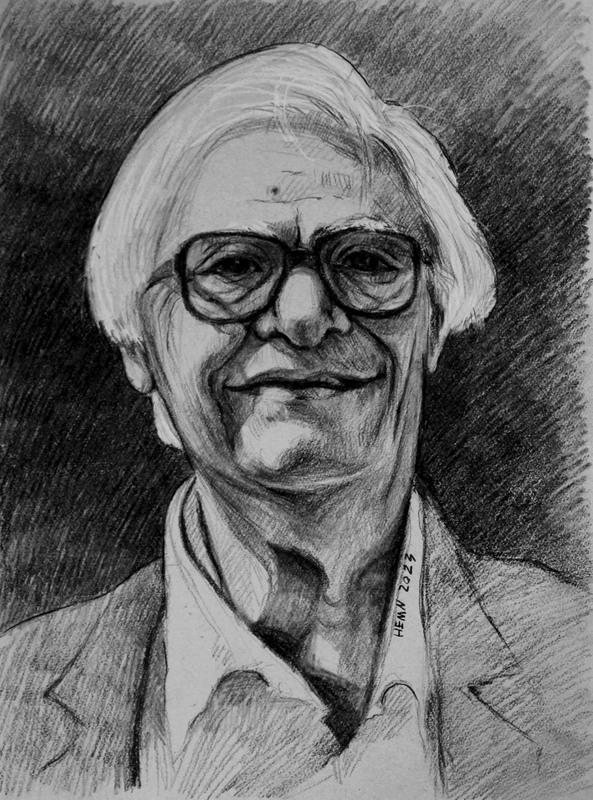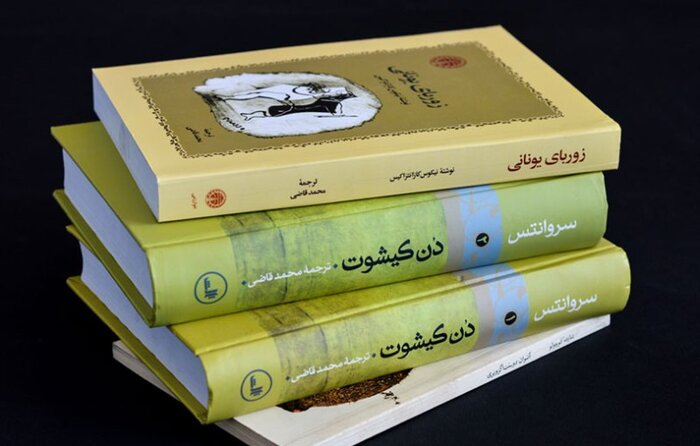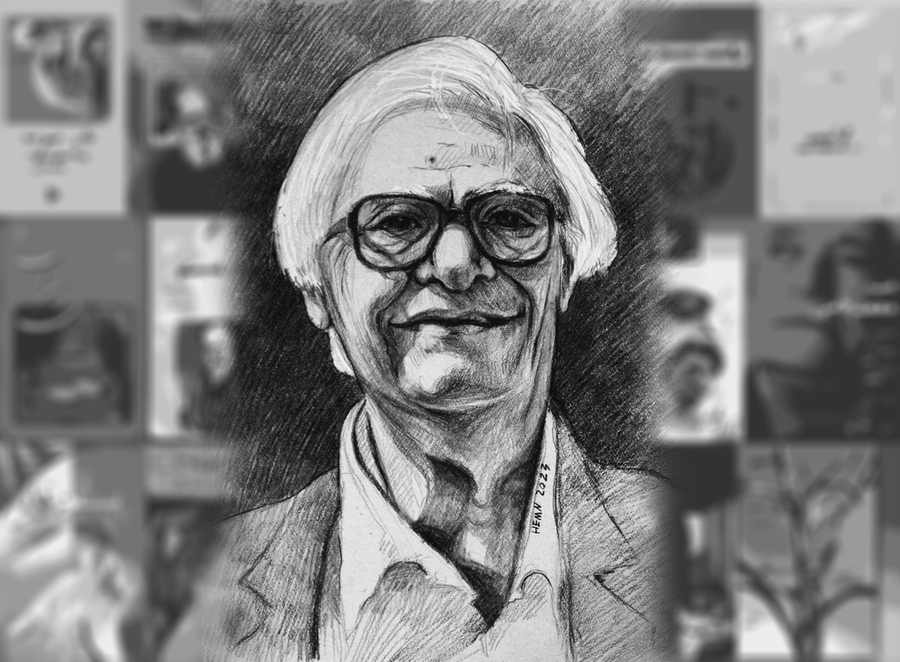Mohammad Qazi was one of Iran's most famous translators. He was born on August 4, 1913, in Mahabad, East part of Kurdistan. He learned French from Mamosta Giwy Mukriani. He moved to Tehran to study and spent most of his life there. In 1936, he completed his high school studies at Darulfonoun, the most famous school in Tehran, and three years later, in 1939, he received a Law degree from Tehran University.
In 1941 he was employed in the Ministry of Finance. He married in 1944 and had two children, Maryam and Farhad. In 1958, he was awarded the Best Translator Award by Tehran University. His wife died the same year. In 1970, he married for the second time. In 1975, he was diagnosed with throat cancer and went to Germany for treatment. After his return, no one could hear him without a microphone on his throat. A year later, in 1976, he applied for retirement due to the pain of his illness and retired.

Character Designer: Hemn Qaremani
Most of Mohammad Qazi's work is translated from French into Persian. One of his most famous works is his translation of Don Quixote, which won him the Best Translation Award in 1957 and 1958. In addition to translations, Qazi wrote several works in Persian too.
With the help of Ahmad Qazi, he translated Ibrahim Ahmad's novel "The Pain of the People" from Kurdish into Persian. In addition to his ability in translation, Qazi had a powerful mind; he memorized thousands of poems. He also wrote poetry for pleasure.

He died in Iran Mehr Hospital in Tehran on January 14, 1998, at 84. His body was brought back to Mahabad and buried in Budagh Sultan cemetery alongside Hemin, Hazhar, Khalemin, Mamle, and other famous Kurdish persons assigned.
In 2008, a four-meter statue of Mohammad Qazi by Hadi Ziauddini, an artist from Sina (Sanandaj), was unveiled in a square named after him in Mahabad.
A room named after Mohammad Qazi has been opened in the Hemin Museum (Heman's Cultural and Artistic Museum of Honors) in Mahabad, where some of his memorabilia are preserved beside his books.









